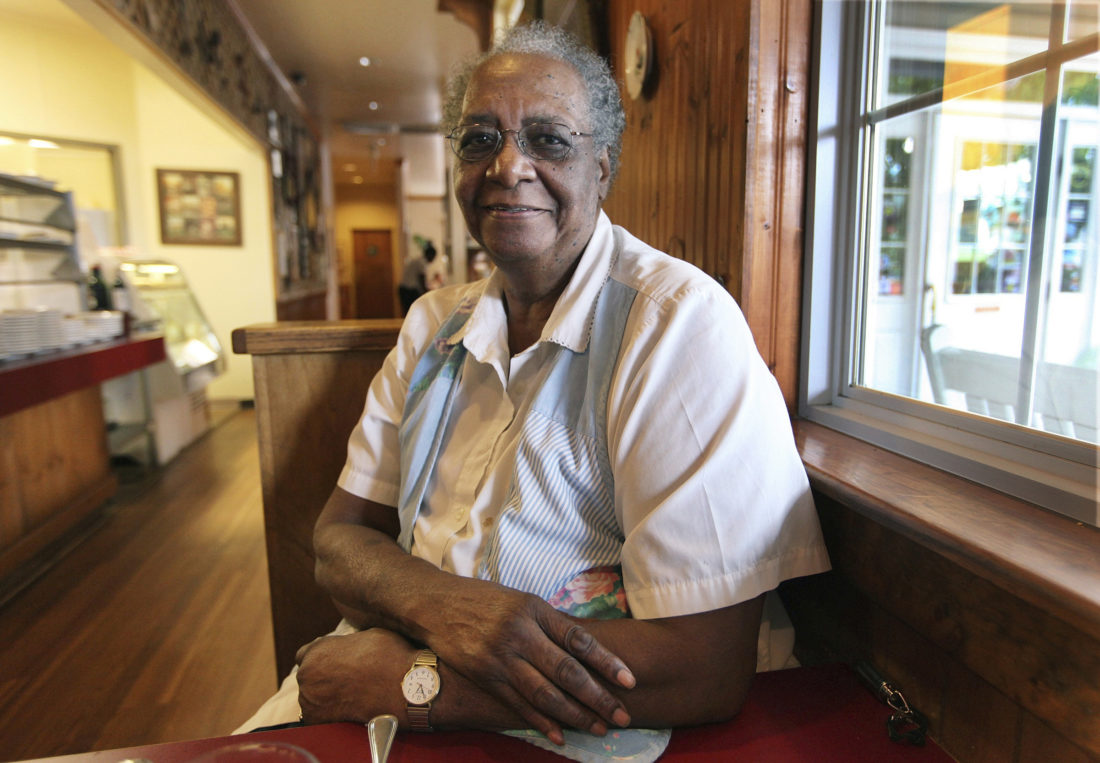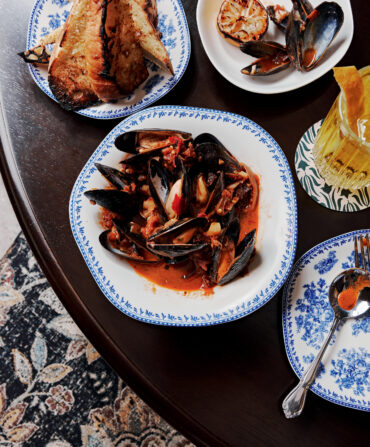Mildred Council wasn’t supposed to surprise anyone.
She was down-home. She was hard-working. She could cook good country food. She was an African-American woman born at a time and place, rural North Carolina in 1929, when not much more was expected of a black woman than to be down-home, hard-working, and a good country cook.
But when Mildred Council, better known as Mama Dip of Mama Dip’s Kitchen in Chapel Hill, died Sunday night at 89, she had managed to do a lot of things that were surprising.
In the introduction to her first cookbook, Mama Dip’s Kitchen, published in 1999, she described the arc of her own life:
“I was born a colored baby girl in Chatham County, North Carolina, to Ed Cotton and Effie Edwards Cotton; grew up a Negro in my youth, lived my adult life black and am now a 69-year-old American.”
What she did with her skills, with that ability to work hard and cook good simple food, was completely surprising. She built a family business and a forty-year legacy around the most basic of things, the ability to fill a table with the kind of food that always delights.
The world came to acclaim Mildred Council. People made pilgrimages to Mama Dip’s for well-crusted fried chicken and a warm pecan pie that came as close to heaven as tall clouds in a blue sky.
How many people who revered her fried chicken noticed that her second cookbook, Mama Dip’s Family Cookbook, included a recipe for kugel? She said that she discovered it at interfaith dinners and loved it so much, she adapted it for herself.
Cobbler, kugel—it was all the same to her. She called herself a “dump cook,” someone who cooked by eye and feel instead of recipes.
“When I talk about dump cooking,” she wrote in her first book, “I am thinking of fresh vegetables, home-grown or from a farmers’ market. I think of peeling potatoes, stringing beans, chopping onions, hulling peas, washing greens and more. Farm fresh is the highlight of country dump cooking.”
Mama Dip got her name because she was tall, over six feet, and could reach way down to the bottom of the rain barrel to scoop a dipper of water even when it hadn’t rained in a while and the water was low. She raised eight children working for fraternities and Chapel Hill families with money, then got the crazy notion to start a little restaurant in 1976, using the money from her job at the local hospital to buy just enough food for a couple of days. It went so well, she had to rush out to a grocery store to buy more food.
It kept going so well that Craig Claiborne, the famed New York Times restaurant critic, found his way to her first restaurant, Dip’s Country Kitchen, and urged her to write down her recipes. That led to two books, and a bigger restaurant, and a family business that’s still run by her children.
While Claiborne put her on the map, along with several other Chapel Hill culinary stars such as the late Bill Neal, once she got on that map, she stayed there. She received North Carolina’s highest civilian honor, the Order of the Long Leaf Pine. She was invited to the White House by George W. Bush.
Dip Council knew how to cook, but what she really knew how to do was seize an opportunity, take her skills and make something out of them, just like that dump cooking. Take what you have, make it good.
When I heard that Mrs. Council had died, I went looking around in the archives for stories I’ve written about her through the years. The story I found that struck me most, though, wasn’t one of my own. It was written by my former Charlotte Observer colleague Kathleen Curry back in 2001, when Dip Council was making appearances for her first book. She had come to the West Boulevard Regional Library in Charlotte for a Sunday afternoon cooking demonstration.
Someone in the audience asked Mrs. Council for the secret to her cooking.
“There’s no secret, really,” she said. The secret is time and attention, tasting things while you cook, not putting too much water in the pot when you cook vegetables, and soaking your chicken in salt water before you fry it.
And then she said this, and it is as good a legacy for a Southern cook as any I could write for her:
“Don’t worry if your brown sugar is dark or light, if your mustard is yellow or Dijon, if your seasoned salt is Lawry’s or Durkee’s.”
“Use what you have. Try something different. Use your imagination.”
Thank you, Mildred Council. You used what you had, you tried something different. And you left us with a legacy of hard work, and some powerfully good food.








